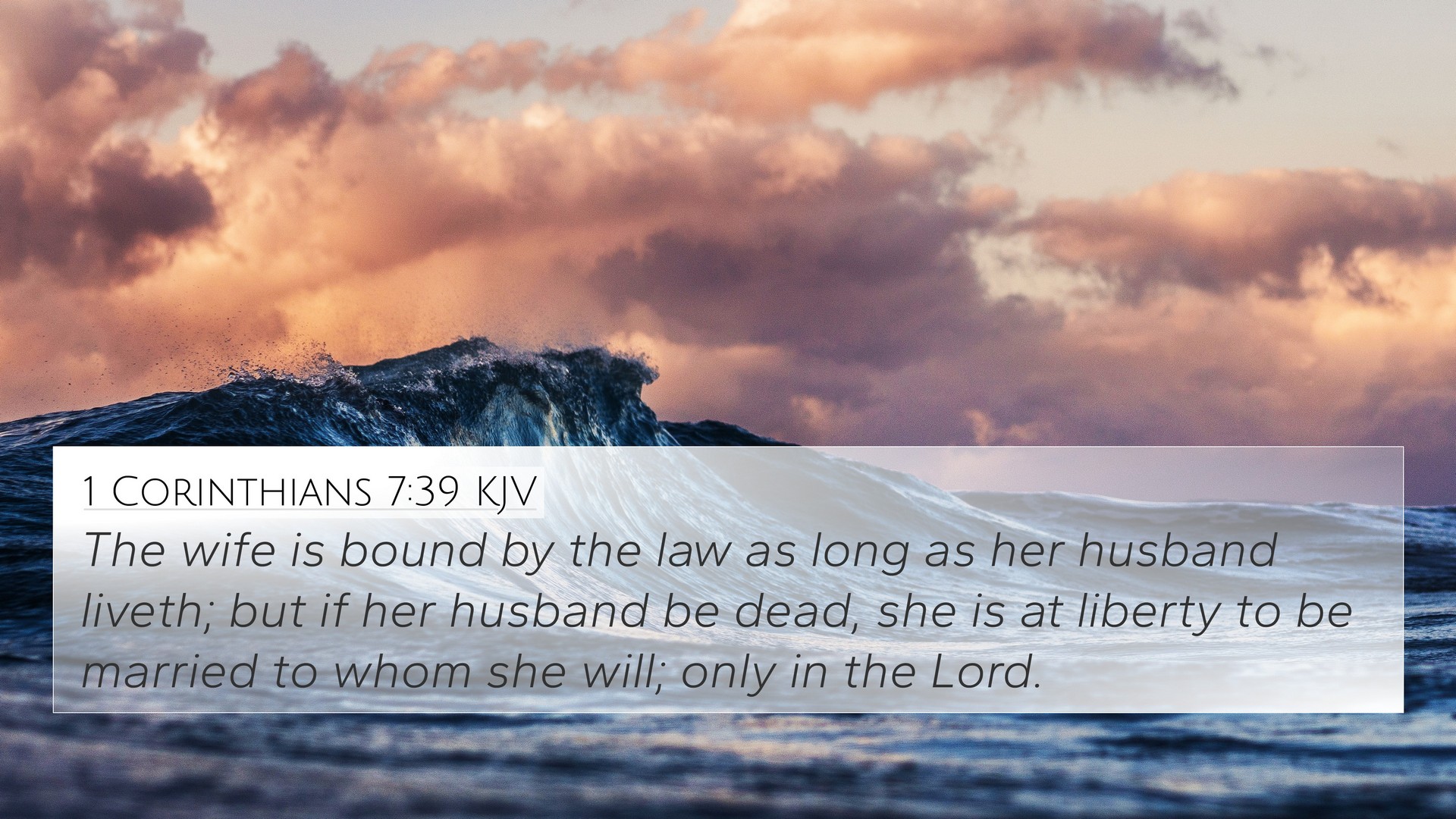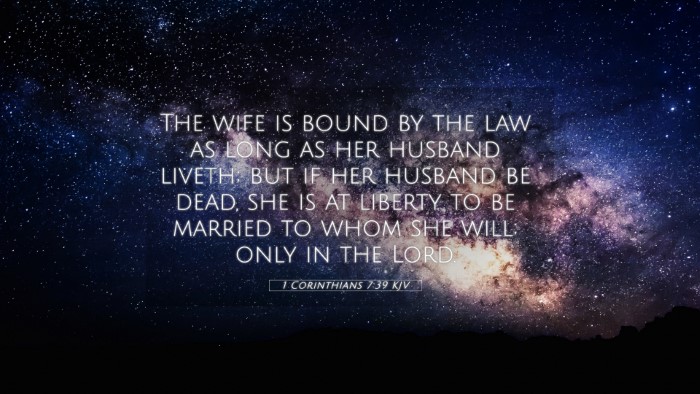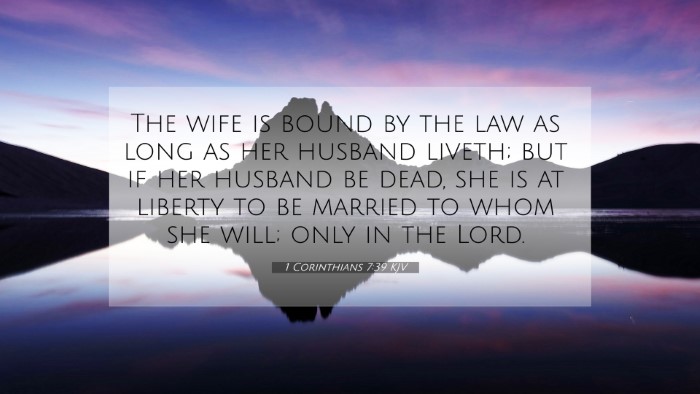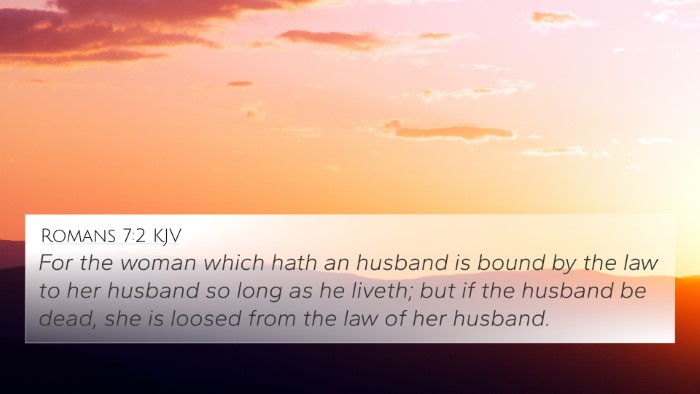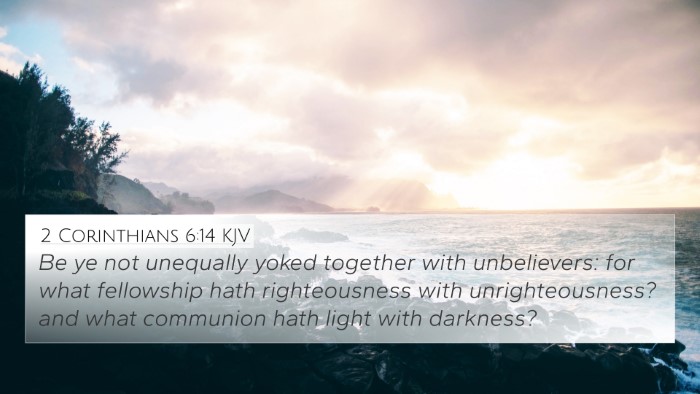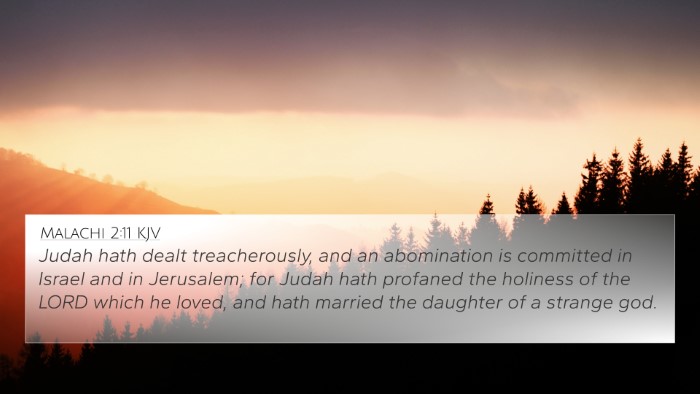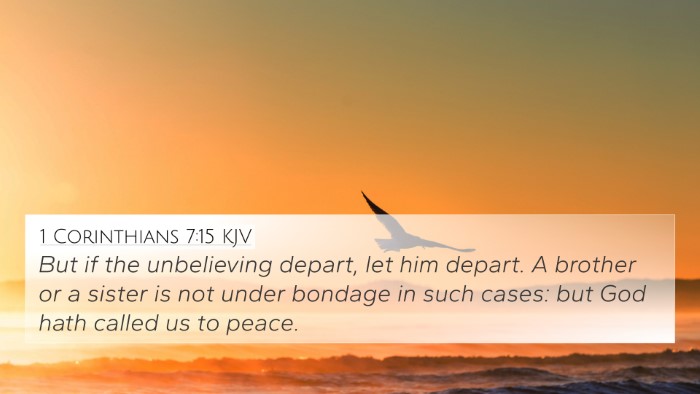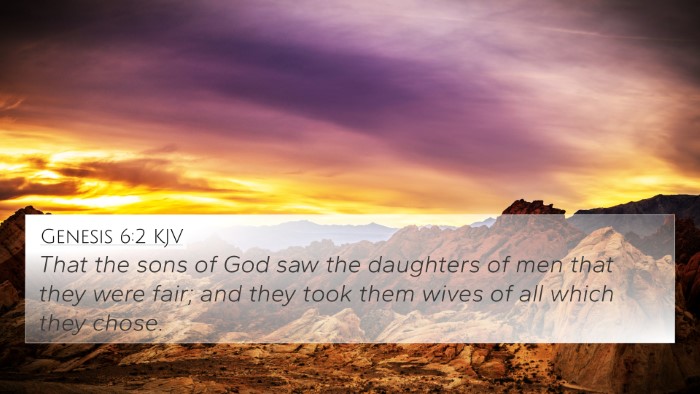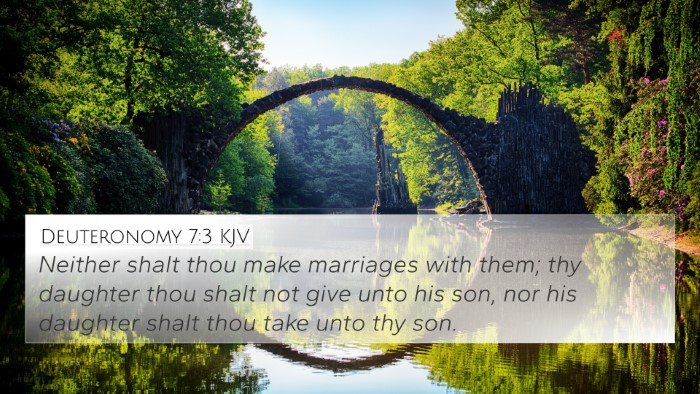Understanding 1 Corinthians 7:39
1 Corinthians 7:39 states, "A wife is bound by the law as long as her husband lives; but if her husband be dead, she is at liberty to be married to whom she will; only in the Lord." This verse addresses the issue of marriage, specifically focusing on the state of a widow.
Summary of Meaning
The key message in this verse revolves around the concept of freedom from marital obligations upon the death of a spouse. It underscores the sanctity of marriage while also offering hope and direction for those who have lost their partners. Let's explore the detailed insights provided by renowned biblical commentators.
Insights from Commentaries
-
Matthew Henry
Matthew Henry explains that this verse emphasizes the binding nature of marriage. He notes that while a husband lives, his wife is under obligation to him, highlighting the seriousness of the marital covenant. Once the husband dies, the wife is released from that bond and has the liberty to remarry, which Henry interprets as God’s grace allowing for a new beginning in life.
-
Albert Barnes
Albert Barnes interprets the term "in the Lord" to mean that a widow should marry another believer. He argues that it’s important for Christians to be united with those who share their faith, ensuring that the new marital relationship is built on common spiritual foundations.
-
Adam Clarke
Adam Clarke provides a thorough analysis of the context surrounding this verse. He emphasizes that the believer's liberty after a spouse's death is granted by divine law. Clarke suggests that the phrase "in the Lord" is a crucial aspect as it underlines the principle that Christians should seek companionship and marriage within the boundaries of their faith, which enhances spiritual growth and stability.
Cross-References for 1 Corinthians 7:39
This verse finds connections with various other scriptures which enhance the understanding and the implications of marriage in biblical context. Here are some Bible cross-references:
- Romans 7:2-3: Discusses the binding nature of marriage and freedom upon the death of the spouse.
- 1 Timothy 5:14: Advises younger widows to marry and bear children, contributing to an active Christian life.
- Matthew 22:30: Jesus teaches about the nature of marriage in the resurrection, shedding light on marital status after death.
- Ephesians 5:22-33: Provides a comprehensive view of marital roles and the profound mystery of the relationship between Christ and the Church.
- 1 Corinthians 7:8: Paul expresses that unmarried individuals have a different type of freedom to serve God.
- 1 Peter 3:1-2: Talks about the importance of conduct in marriage, especially when mixed with different beliefs.
- Hebrews 13:4: Underlines the honor of marriage and God’s judgment against immorality.
- 1 Corinthians 9:5: Mentions the apostles and their right to take a sister as a wife, reinforcing the normalcy and approval of marriage.
- Malachi 2:14: Indicates the faithfulness required in marital covenants.
- Matthew 19:9: Jesus discusses marriage and permissible grounds for divorce, reiterating the significance of commitment in marriage.
Thematic Connections
This verse and its cross-references open pathways to thematic Bible verse connections, such as:
- The nature of commitment in marriage - Explored in passages like Ephesians 5 and Hebrews 13.
- The freedom granted after a spouse's death - Highlighted in Romans 7 and 1 Timothy 5.
- Christian unity in marriage - Emphasized in 2 Corinthians 6:14, where believers are cautioned against unequal yoke.
- Spiritual growth in marital relationships - Discussed across various Pauline letters.
Conclusion
In 1 Corinthians 7:39, Paul provides a delicate balance of the sanctity of marriage and the freedom found in Christ, particularly through the lens of a widow’s choices. Understanding this through various commentaries allows for a nuanced perspective, rich with theological implications and practical applications for those navigating life after loss.
Using tools for Bible cross-referencing, individuals can deepen their understanding of this verse and relate it to a multitude of other scriptures, enriching their study and spiritual life. This promotes a comprehensive Bible cross-reference system that can aid in sermon preparation or personal reflection, while engaging in inter-Biblical dialogue throughout both testaments.
